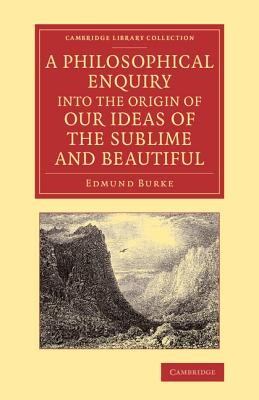
- We will send in 10–14 business days.
- Author: Edmund Burke
- Publisher: Cambridge University Press
- ISBN-10: 1108067204
- ISBN-13: 9781108067201
- Format: 14 x 21.3 x 2.3 cm, minkšti viršeliai
- Language: English
- SAVE -10% with code: EXTRA
A Philosophical Enquiry Into the Origin of Our Ideas of the Sublime and Beautiful (e-book) (used book) | bookbook.eu
Reviews
Description
By the eighteenth century, the term 'sublime' was used to communicate a sense of unfathomable and awe-inspiring greatness, whether in nature or thought. The relationship of sublimity to classical definitions of beauty was much debated, but the first philosopher to portray them as opposing forces was Edmund Burke (1729-97). Originally published in 1757 and reissued here in the revised second edition of 1759, this influential treatise explores the psychological origins of both ideas. Presented as distinct consequences of very separate emotional lineages, beauty and sublimity are traced back through a web of human feelings, from self-preservation instincts to lust. Burke's doctrine of the sublime was to have far-reaching effects. In Britain, it informed perceptions of landscape in art and literature for years to come. Meanwhile, on the continent, Kant regarded Burke as 'the foremost author' in 'the empirical exposition of aesthetic judgments'.
EXTRA 10 % discount with code: EXTRA
The promotion ends in 21d.20:36:08
The discount code is valid when purchasing from 10 €. Discounts do not stack.
- Author: Edmund Burke
- Publisher: Cambridge University Press
- ISBN-10: 1108067204
- ISBN-13: 9781108067201
- Format: 14 x 21.3 x 2.3 cm, minkšti viršeliai
- Language: English English
By the eighteenth century, the term 'sublime' was used to communicate a sense of unfathomable and awe-inspiring greatness, whether in nature or thought. The relationship of sublimity to classical definitions of beauty was much debated, but the first philosopher to portray them as opposing forces was Edmund Burke (1729-97). Originally published in 1757 and reissued here in the revised second edition of 1759, this influential treatise explores the psychological origins of both ideas. Presented as distinct consequences of very separate emotional lineages, beauty and sublimity are traced back through a web of human feelings, from self-preservation instincts to lust. Burke's doctrine of the sublime was to have far-reaching effects. In Britain, it informed perceptions of landscape in art and literature for years to come. Meanwhile, on the continent, Kant regarded Burke as 'the foremost author' in 'the empirical exposition of aesthetic judgments'.


Reviews